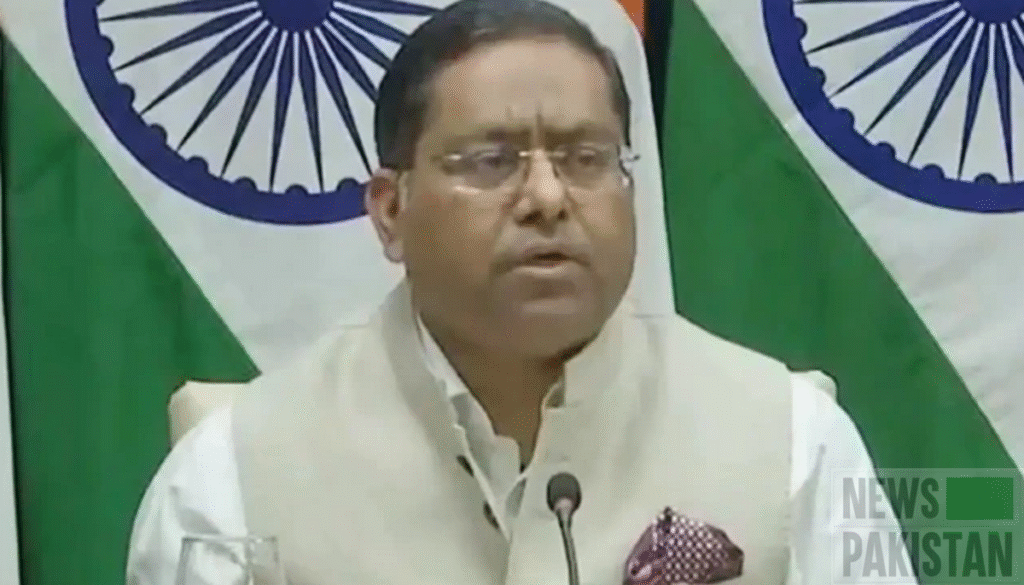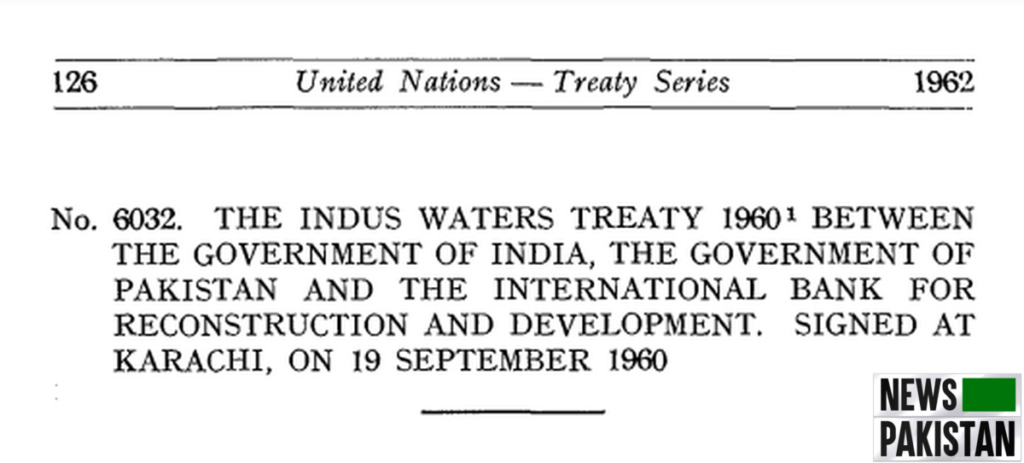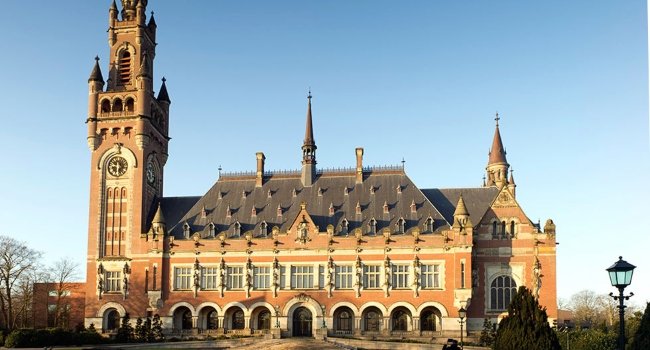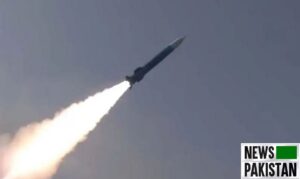NEW DELHI: Indian MEA has rejected the Hague ruling here on Thursday (14th August, 2025) apropos Indus Waters Treaty (IWT) citing lack of legal standing.
Earlier, the Permanent Court of Arbitration in The Hague had ruled that India must adhere to the 1960 IWT in design of new hydro-electric power stations on rivers going to lower riparian. It may be recalled that under the Treaty three rivers were awarded to Pakistan.
Deciding the 2023 case apropos Pakistan’s objection to the design of hydropower projects on its rivers, court held Monday (12th Aug, 2025) that the Treaty “does not permit India to generate hydro-electric power on the Western Rivers based on what might be the ideal or best practices approach for engineering.”

In the wake of the killing of 27 tourists in Pahalgam area of Occupied Kashmir a day earlier, India has suspended Indus Waters Treaty 1960; closed Attari Border Checkpost and ordered Pakistanis to leave the country by 1st May, 2025.
Little known The Resistance Front (TRF) took to the Telegram to claim the responsibility for the attack, accusing India of changing the demography of IOK by granting residency permits to (what they termed as) outsiders: “… violence will be directed toward those attempting to settle illegally!”
Talking to journalists at a Presser held here on 23rd April, Foreign Secretary Vikram Misri told about the rendezvous of the Cabinet Committee on Security (CCS) with the PM in the Chair: “In the briefing to the CCS, the cross-border linkages of the terrorist attack were brought out. It was noted that this attack came in the wake of the successful holding of the elections in the union territory and its steady progress towards economic growth and development.

“Recognising the seriousness of this terrorist attack, the CCS decided upon the following measures: the Indus Waters Treaty of 1960 will be held in abeyance with immediate effect until Pakistan credibly and irrevocably abjures its support for cross-border terrorism.” According to details all those Pakistanis who entered India utilising the facility of the Saarc Visa Exemption, will have to leave within 48 hours. Others have been ordered to exit by 1st May.
“Pakistani nationals will not be permitted to travel to India under the Saarc Visa Exemption Scheme…The defence, military, naval and air advisers at the Pakistani High Commission in New Delhi are declared persona non grata. They have a week to leave India. India will be withdrawing its own defence, navy and air advisers from the Indian High Commission in Islamabad.”
India, that also closed Attari Border Check Post, ordered personnel associated with defense at the Pakistani diplomatic pose here to leave within a week. Expressing concern over killing of 27 tourists by unknown militants in Pahalgam area of Occupied Kashmir a day earlier, the spokesman of the Foreign Office here expressed Pakistan’s concerns Wed (23rd April, 2025).
Foreign Office of Pakistan, extending condolences to the relatives of the slain tourists, stated: “We are concerned at the loss of tourists’ lives in an attack in Anantnag district of Indian Illegally Occupied Jammu and Kashmir.” 4 militants randomly shot 27 tourists (all men) dead in the Baisaran meadow (5km away from Pahalgam) by means of automatic guns on Tuesday (22nd April, 2025). The shooting lasted 20-30 minutes.

Ambassador Munir Akram, called for “strict” implementation of the 1960 Indus Waters Treaty (IWT), a World Bank-negotiated water-distribution agreement between India and Pakistan, as he underscored the need to address the looming water crisis.
“Increasing water demand, coupled with climate change impacts, creates the potential for trans-boundary water disputes in several parts of the world,” Ambassador Munir Akram told the UN Security Council’s high-level debate on the impact of climate change and food insecurity on international peace and security.
“Pakistan attaches high priority to the strict implementation of the Indus Waters Treaty,” the Pakistani envoy stressed in the course of the day-long debate, which was convened by Guyana, the president of the Security Council for February. Nearly 90 countries took part.
Pakistan, he added, aims to reinvigorate the Indus River basin — the largest contiguous irrigation system in the world, which provides food security to over 225 million people.
“To this end, Pakistan has launched the multi-dimensional Living Indus projects,” Ambassador Akram told the 15-member Council.
Noting that the disputes over water – at the state, sub-national and local-community levels – were rising, he said competing claims to agricultural and animal pastures, especially in Sub-Sahara and Central Africa, were being exploited by terrorist groups and criminal gangs.
“The scramble for exploitation of fisheries and fishing rights, and potentially for seabed minerals and resources, is causing increased friction between neighboring coastal countries,” he pointed out. “Addressing the looming water crisis will be critical,” Ambassador Akram added.
Extreme temperatures, he said, were melting Pakistan’s glaciers at an alarming rate, and together with heavier monsoons, lead to massive foods, like the 2022 epic floods which devastated the country, causing damage amounting to over US$ 30 billion.
“Urgent action is required to preserve the Himalayan glaciers and adapt to the impacts of global warming,” the Pakistani envoy told delegates from around the world. When addressing climate change, securitizing the issue in the development agenda must be avoided, Ambassador Akram said.
The already scarce funding should not be diverted from development and climate change actions to security-related approaches.
Scarcity is the mother of most conflicts, he said, adding that the best means of conflict prevention is sustainable development, achieving the SDGs (Sustainable Development Goals) and the climate goals.
“Unless the commitments made at COP-28 and other Conferences are implemented, ” Ambassador Akram said, “it will become almost impossible to achieve either the goals of climate change or the SDGs.”
The Security Council, he said, could make a singular contribution to both the climate and development goals – by endorsing the commitments made on climate change and sustainable development to transform these into binding obligations.
Opening the debate, UN Secretary-General Antonio Guterres called on member states to act now to break the deadly links between conflict, climate and food insecurity.
Climate chaos and food crises are serious and mounting threats to global peace and security. It is only right that they are addressed by this Council, he said.
Climate disasters and conflict both inflame inequalities, imperil livelihoods, and force people from their homes, the UN chief said.
They are also two of the leading drivers of the global food crisis, with almost 174 million worldwide affected in 2022.
The UN chief said he was dismayed that the world is teeming with examples of the devastating relationships between hunger and conflict.
One such situation is Gaza, where no one has enough to eat, Guterres said. Of the 700,000 hungriest people in the world, four in five inhabit that tiny strip of land.
Furthermore, he said, climate disasters add another dimension to the suffering in many places.
All 14 countries that are most at risk from climate change are experiencing conflict, with 13 also facing humanitarian cr
Newspakistan.tv









